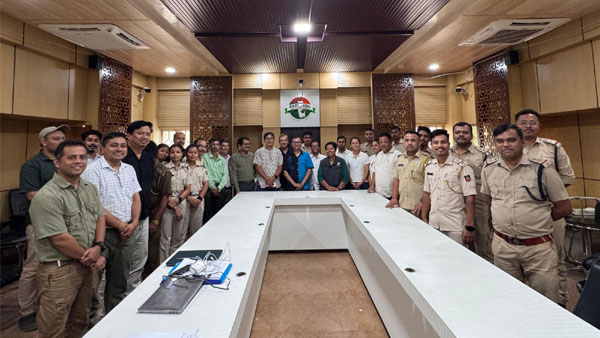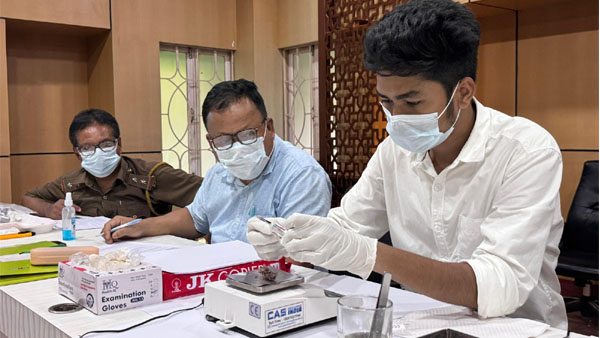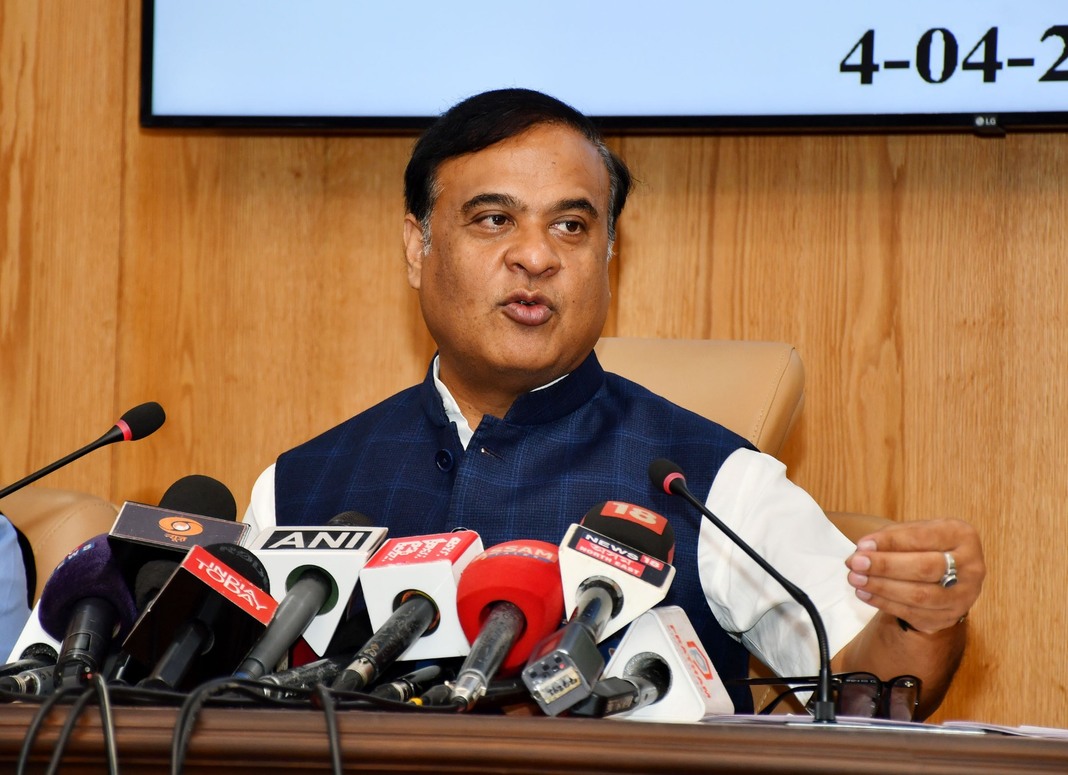GUWAHATI, July 10: In a landmark conservation effort, Assam has begun the genetic analysis of rhino horn samples collected from a historic stockpile of seized and stored horns. The process, which began between July 3 and 8 at Kaziranga, marks a significant step toward strengthening rhino conservation and wildlife crime investigation in India.
The samples are part of the horn reconciliation exercise conducted by the Assam Forest Department, which culminated in the mass destruction of 2,479 rhino horns on September 22, 2021, in a public event aimed at busting the myth surrounding the supposed medicinal value of rhino horn. Out of 2,623 reconciled horns, only those with legal or scientific significance were preserved, and small samples were retained from each for genetic and chemical analysis.

A specialized team, constituted by the Chief Wildlife Warden, verified and segregated 2,573 horn samples under strict protocols and in the presence of independent observers and media representatives. These samples were carefully repackaged into vials at Kaziranga and are now being sent to the Wildlife Institute of India (WII) for advanced DNA profiling under the RhoDIS India programme, led by Dr. Samrat Mondol.
The Rhino DNA Indexing System (RhoDIS) is a national-level initiative launched in India in 2016, involving the Ministry of Environment, Forest and Climate Change (MoEFCC), WII, WWF-India, and rhino-bearing states. It serves two main objectives: enhancing wildlife crime investigation through DNA evidence and supporting scientific management of rhino populations through genetic monitoring.
This genetic analysis will not only create unique DNA profiles for each horn but also help track potential changes in STR (Short Tandem Repeat) allele frequencies over time. This could reveal important insights into genetic diversity, inbreeding, or shifts in population structure across rhino habitats in Assam.
Additionally, select horn samples have been set aside for chemical analysis, which will be conducted in a subsequent phase.
With this initiative, Assam reinforces its role as a leader in proactive and science-based wildlife conservation, setting a precedent for transparency, accountability, and rigorous ecological management in the face of escalating poaching threats.




